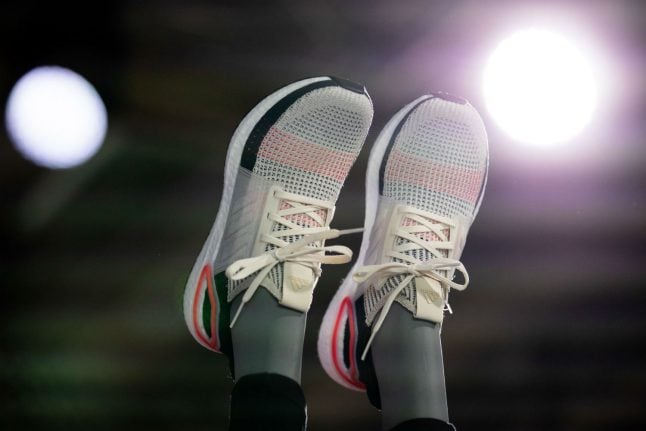In 2020, the share of recycled polyester in Adidas products will “exceed 50 percent for the first time”, the company said in a statement.
By 2024, Adidas “is committed to using only recycled polyester” across its entire range of shoes, clothing and other items like bags and shin guards.
READ ALSO: 'Tyres made from dandelions': Germany to invest billions in 'bio-economy'
The Bavarian company also said it aimed to churn out 15 to 20 million pairs of shoes in 2020 using recycled plastic waste collected “from beaches and coastal regions”.
The group already sold more than 11 million such pairs last year — still just a fraction of the more than 400 million pairs of shoes it makes annually.
Adidas said it was committed to battling the scourge of plastic waste “to stop the pollution of the world's oceans”.
The firm's first running shoe made entirely from recycled materials, the “Futurecraft Loop”, is set to hit stores in 2021.
Since 2015, it has collaborated with environmental organization Parley for the Oceans on a range of products, including football shirts for major clubs such as Real Madrid and Bayern Munich.
READ ALSO: Adidas to bring production home with robot shoe factory



 Please whitelist us to continue reading.
Please whitelist us to continue reading.
Member comments